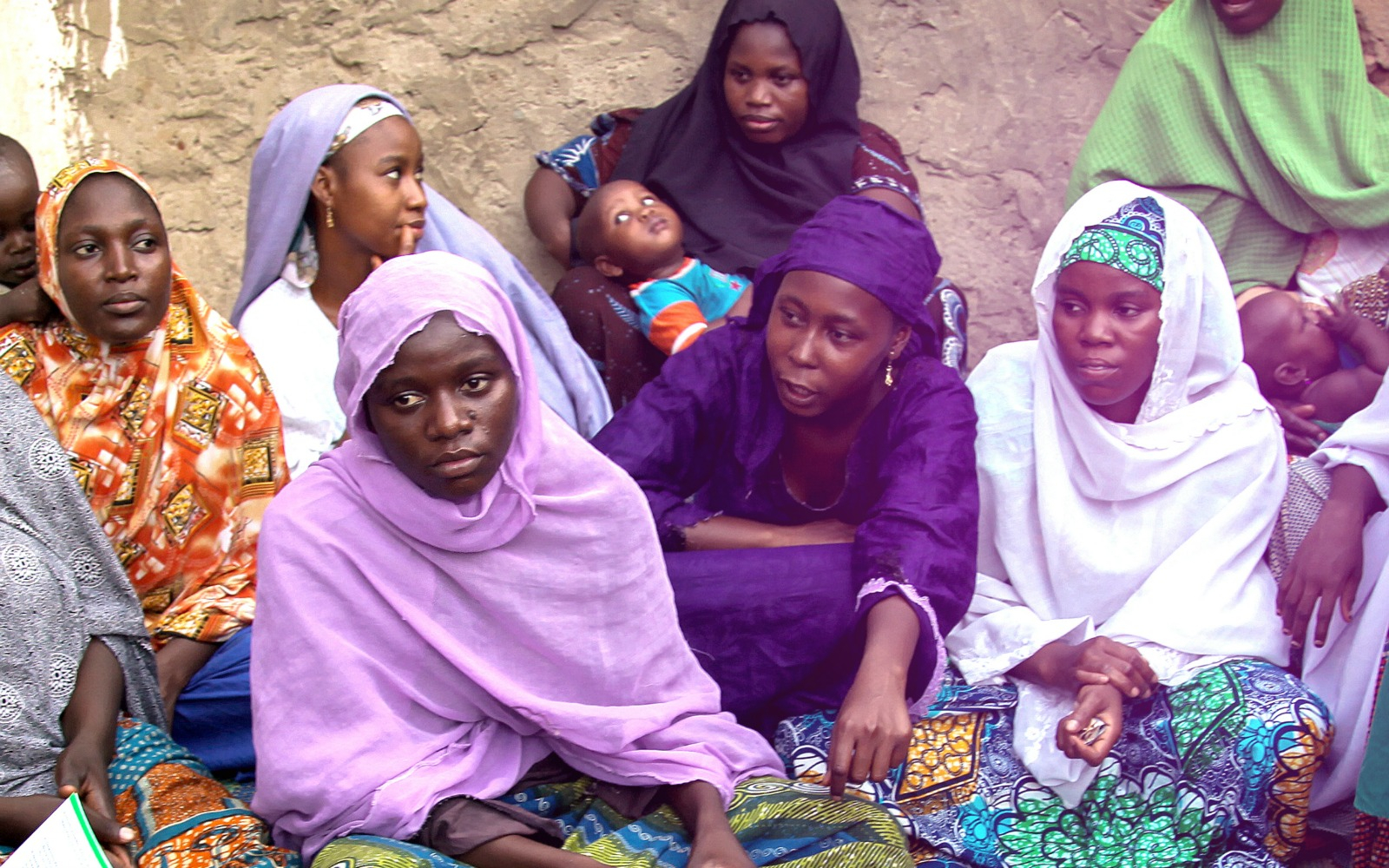
Women in the Sokoto state of northern Nigeria
SHARE
ISSUES
When rural women get active in political processes that affect their lives, positive change results. Recently, in the Sokoto state of northern Nigeria, women have influenced decision-making by targeting their local government council with advocacy.
In mid-2016, NDI began partnering with the Life Helpers Initiative (LHI), a Sokoto-based civil society organization (CSO) known for health, education and socio-economic interventions. With NDI’s training, LHI has set out on campaigns to empower local women as political activists and advocates in three of Sokoto’s Local Government Areas (LGAs): Bodinga, Dange Shuni and Yabo.
Sokoto State, an important seat of Islamic learning in Nigeria, is made up mostly of Hausa people and smallholder farmers. LHI’s experience has shown that, in this part of Nigeria, rural women typically do not receive the same education and opportunities as their male peers, which makes them more reluctant to work with government officials, even on issues that could affect them. They rarely, if ever, have the opportunity to engage in the political process. LHI and NDI Nigeria initiated campaigns in all three LGAs, which have educated rural women about how their local government works, as well as the roles and responsibilities of their councillors.
Before LHI came to us, we didn’t know our rights, we’d just sit at home. But this intervention has brought us out of our shells; enlightened us on to how to speak out to build our community; taught us the skills and showed us the ways we can support fellow women and support our children’s education; and got us involved in election issues through registering for our voters’ cards.
Women’s Desk Officer Balkisu Gayta of Yabo LGA
Emboldened with newfound confidence and knowledge, women are now taking messages and solutions about education -- especially for girls -- and the need for better health services, directly to local officials. They are organizing other women to register and pick up voter cards, advocating for inclusion of women’s policy priorities in the local government budget.
With LHI’s encouragement, women are putting their advocacy skills into practice. For the first time, they are making sure elected officials take action on local community needs, and they expect regular progress reports from the government. Receptive to the new initiative, local councillors have expressed surprise at how rapidly the attitudes of local women have changed to hold them more accountable.
These women are better advocates, well organized, and are really struggling for the development of their community. I have not seen any group like them.
Councillor Mallam Shehu Ari, representing Kilgoti Ward, Yabo LGA
As a direct impact of LHI’s work, the Bodinga, Dange Shuni and Yabo have now agreed to appoint women’s desk officers to provide support to women in each LGA. They will link women to the local government executive and councils and provide information to the community. The women’s desk officer will also hold the local government chairman accountable for addressing the policy concerns and interests of local women.
With NDI’s guidance, LHI staff provided advocacy training to 45 women on power mapping, community organizing, strategy, campaign development and planning. As a result, rural women are taking decisive action to address their own concerns. In Bodinga LGA, for example, where the lack of female staff at the local clinic discouraged women from using the facility, local women who had taken part in the LHI training succeeded in getting the LGA Health Director to deploy female staff to the clinic. Even further, he urged mothers to enroll their girls in school, specifically to train as nurses and doctors for future community service. In an environment where education for girls is not a priority, this was a big step.
Before now, we were scratching the surface on governance issues. With the partnership of NDI Nigeria, we have become sharper, more strategic and focused; crystallizing the issues better, galvanizing the community members greater; engaging the local leaders and officials stronger. Our internal systems are stronger with updated policies, positioning LHI for sustainable progress. Indeed, with NDI, we have wind on our wings.
Tayo Fatinikun, LHI Executive Director
The next day, even though the school session had already begun, 23 more girls enrolled who had never before stepped into a classroom because the LHI training helped them realize the value of education. This new wind of change, brought about through women’s political participation, will make it easier to achieve better healthcare for rural women in Bodinga and encourage more families to urge their girls to pursue education.
LHI has been so successful the Sokoto state government has asked them to help finalize the state’s Gender Policy, which would create a women’s desk officer position in 20 more LGAs in Sokoto, thereby covering all 23 LGAs in the state.
LHI's local government advocacy campaigns are creating a corps of female political advocates who LHI is preparing to advocate on policy and services at the state and federal level. These women have now experienced the power of their voice in reshaping their communities and the future for themselves and their children.


